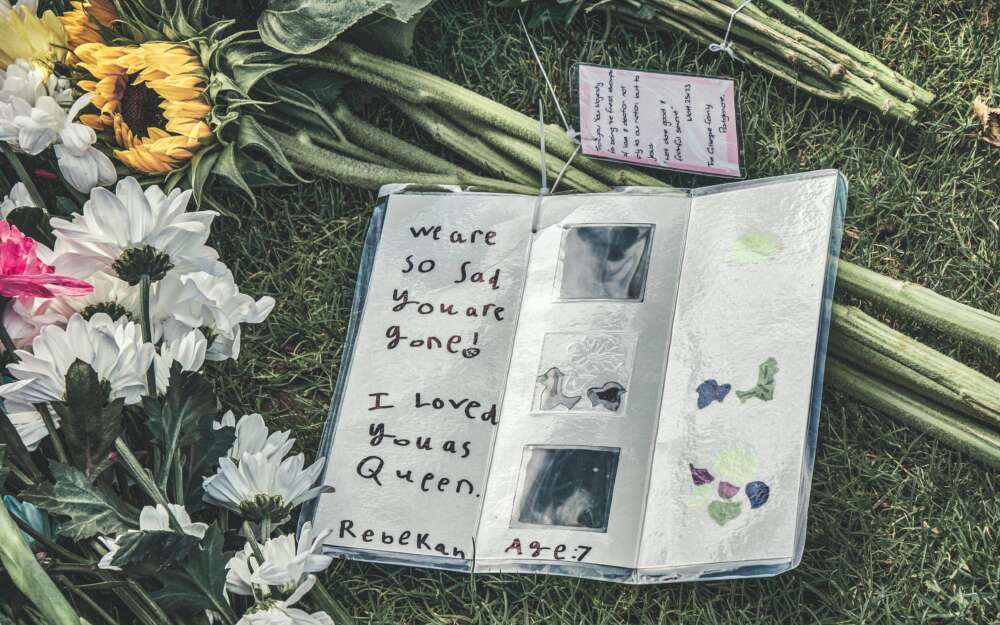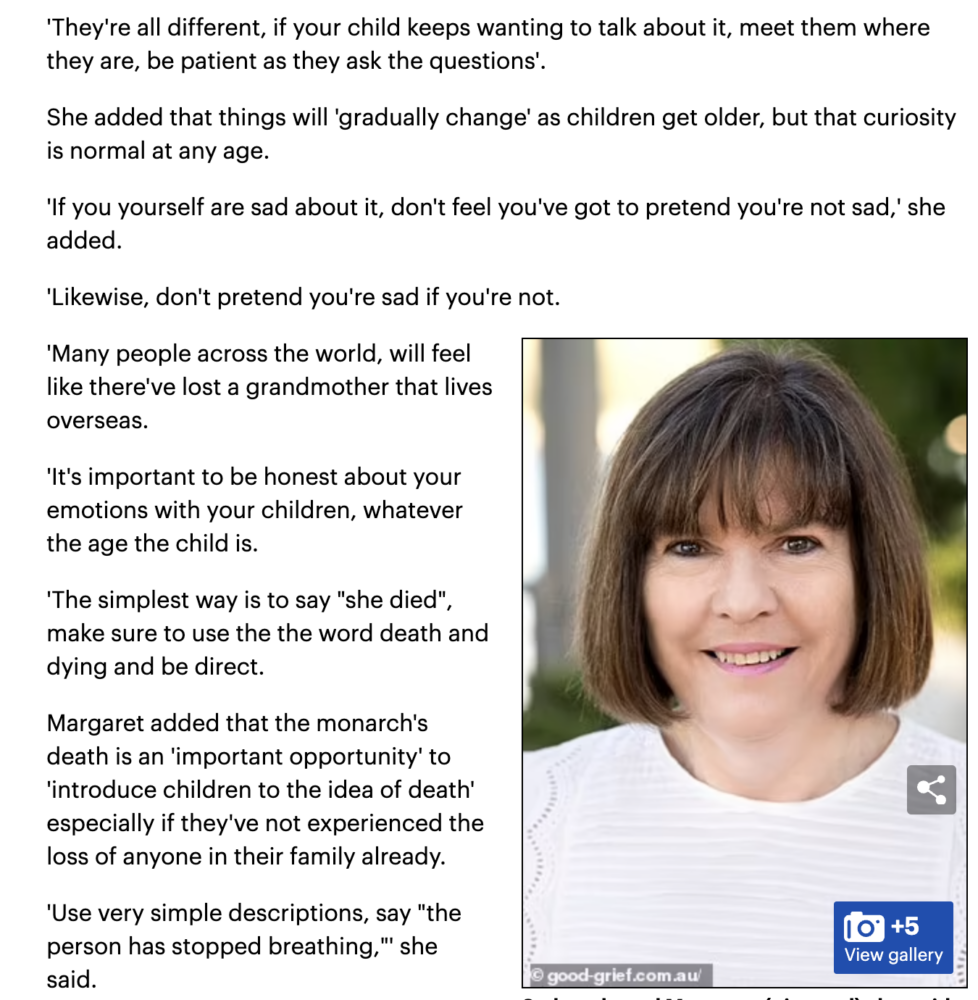

It was great to chat with The Daily Mail Australia’s Bridie Pearson-Jones about how to help child cope with their feelings over Queen Elizabeth II’s death.
A few key points:
It’s important to be honest. Say “She died.”
Use simple but concrete language. For example, when explaining what die means, say “The person has stopped breathing.” Children deal with death in a very concrete way. Euphemisms confuse them.
Talk about deaths that impact you openly. Silence when something emotionally big has happened in their world worries children. Worry can lead to fear.
Expect questions to be repeated. Children will keep asking the same questions until they have processed what you tell them. As an aside, If this is someone close to them, for example a great-grandmother who they visited often, expect questions or comments about it again and again, maybe for several months. Be patient.
They could react more strongly than you expect. Often this is because they don’t understand the nature of their connection to the Queen, since they ‘knew’ her really well through the television.
Is this loss a way to prepare for another loss, closer? See the loss as a way of helping children to gently learn more about death – meeting them where they’re at. It’s important to find a way to do this without frightening them. For example, remind them what happened when their bird died last year, how we buried the bird then planted a little rose bush above it and watched it grow.
You can use story books and picture books to help them. (For example Mem Fox’s book Sophie. ) This can help to ‘contain’ the story, rather than turn it into a frightening thing, lurking in their imagination, ready to surface as a nightmare.
Here are quotes from Bridie’s story.
“An Australian expert has revealed the best way to speak to your children about the death of the Queen, revealing parents should ‘be honest’ and ‘show their own emotion’ when breaking the news.
“The world was plunged into mourning after Her Majesty passed away aged 96 on Thursday last week, with many parents revealing their children have asked questions about the historic event.
“Speaking to Daily Mail Australia, Margaret Rice, curator of Good Grief website, said that it was ‘normal’ for children to ‘have a lot of questions’ about the royal’s passing and it’s best for parents to be as ‘simple and honest as possible’ when explaining what’s happened.”
‘Children experience grief and loss from a very young age,’ she explained.
‘They will want to talk about it quite a bit, and they might repeat questions, you might think you’ve answered the questions about it, but it comes back again in another way, and that’s normal.
To read more of our tips in the Daily Mail, go to:
For more information.
Here is a great resource by the Victorian Government on talking to children about death and grief.
https://www.betterhealth.vic.gov.au/health/healthyliving/grief-and-children
About dealing with terrorist attacks.
Victoria
